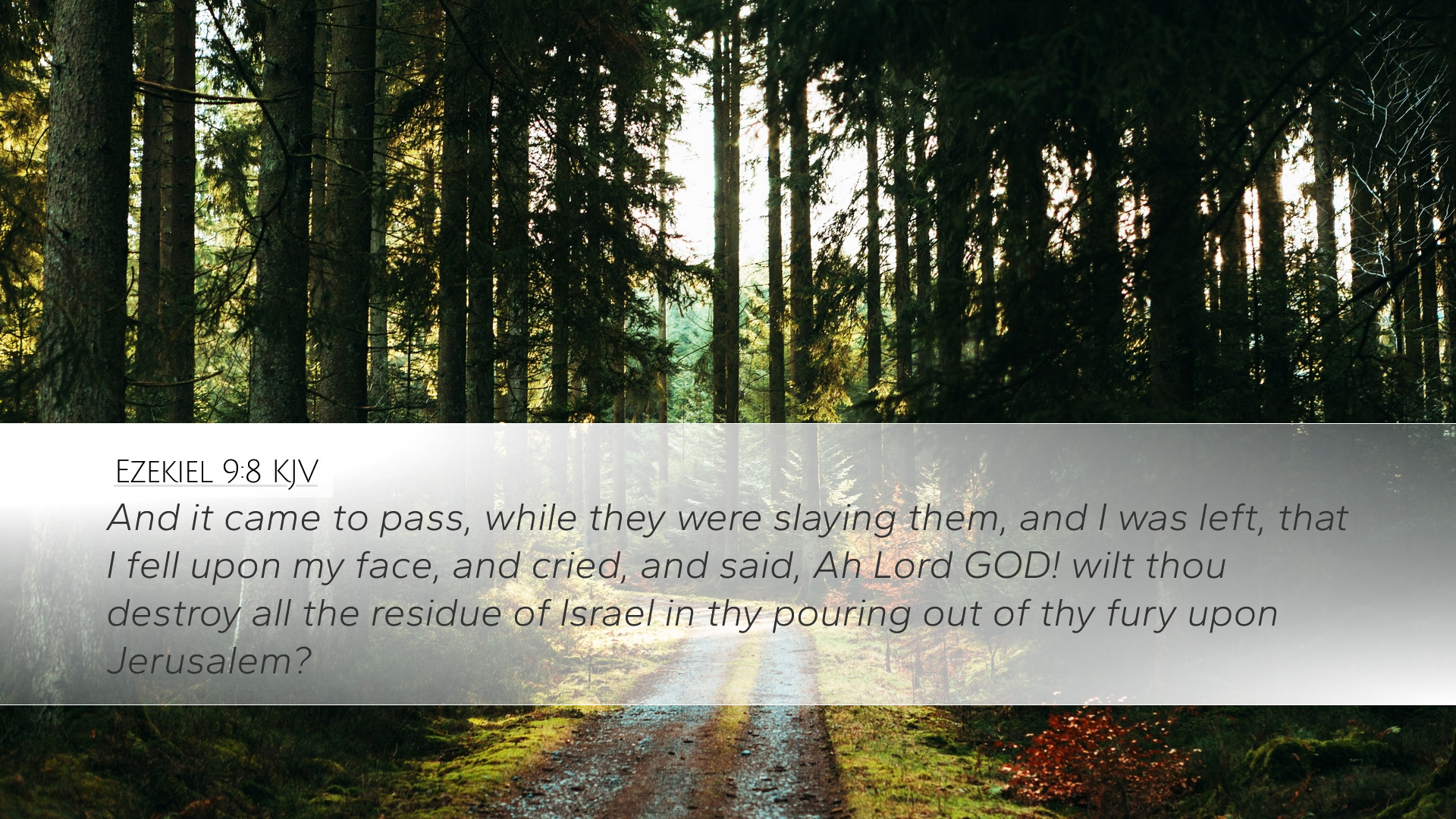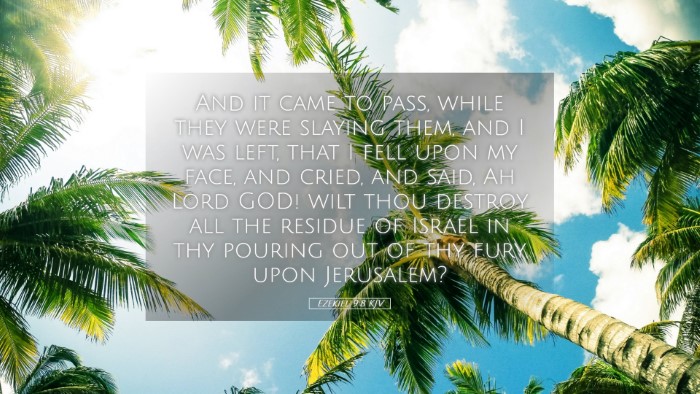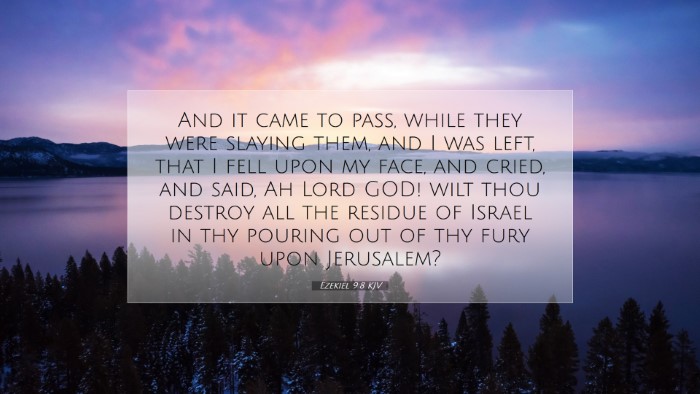Ezekiel 9:8 - Commentary and Insights
Verse: "And it came to pass, while they were slaying them, and I was left alone, that I fell upon my face, and cried, and said, Oh Lord God! wilt thou destroy all the residue of Israel in thy pouring out of thy fury upon Jerusalem?" (Ezekiel 9:8, KJV)
Introduction
This poignant verse from Ezekiel captures the deep emotional response of the prophet as he witnesses the divine judgment against Jerusalem. The focus of the commentary here will be on the themes of judgment, mercy, intercession, and the profound role of the prophet in the context of God's plan for His people.
Contextual Analysis
Ezekiel 9 is a critical passage that outlines God’s judgment on Jerusalem through the figurative representation of slaying and destruction. This chapter follows the introduction of divine judgment (Ezekiel 8) where God reveals the abominations happening in the temple.
Matthew Henry emphasizes that the judgment described reflects God's holiness and justice. He notes that the slaying represents not just physical death, but spiritual separation from God, a grave consequence of sin.
The Prophet's Plea
As Ezekiel witnesses the destruction, he is left alone, underscoring his role as a solitary intercessor. Adam Clarke highlights this moment as an illustration of Ezekiel’s deep concern for the people. His plea, "Oh Lord God! wilt thou destroy all the residue of Israel?" shows a profound emotional investment and an understanding of God's covenant faithfulness.
Theological Insights
Albert Barnes points out that this cry reflects a balance between God’s justice and mercy. While judgment is necessary for sin, the heart of the prophet seeks mercy for those left behind, demonstrating a key characteristic of prophetic ministry—the desire for redemption and restoration.
- Divine Justice and Human Response: The tension of divine judgment alongside human intercession is vital in understanding God's relationship with Israel.
- The Role of the Prophet: Ezekiel’s position represents the voice of the remnant, embodying both the severity of God’s character and the hope for His mercy.
Implications for Believers
This passage invites believers to consider their response to God's judgment. Echoing Henry, the urgency for repentance becomes clear. The question arises: "Are we addressing the spiritual decay in our own lives and communities?"
Moreover, Clarke reminds us of the hope found in intercession. Just as Ezekiel intercedes on behalf of Israel, Christians are called to stand in the gap for others, praying for restoration and mercy.
Concluding Thoughts
The deep emotions expressed in Ezekiel 9:8 serve as a reminder of the gravity of sin and the necessity of divine justice. Yet, through the anguish of the prophet, we also glimpse the profound heart of God, who desires redemption for His people.
In light of these reflections, pastors, students, and scholars are called to engage with this text not only for understanding but also for application—a call to prayer, intercession, and striving for a heart that mirrors God's desire for reconciliation.


